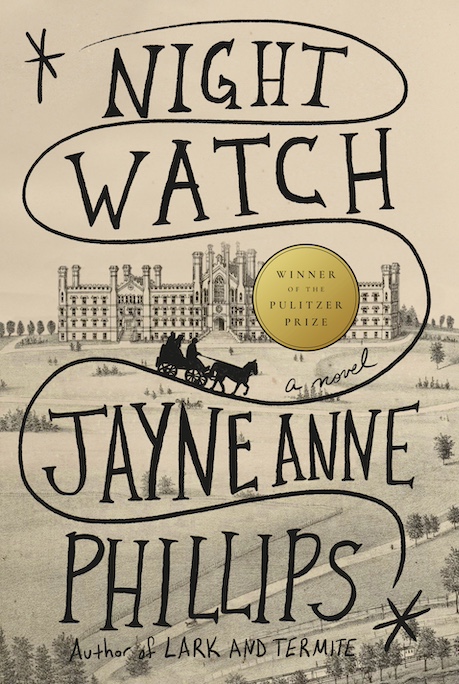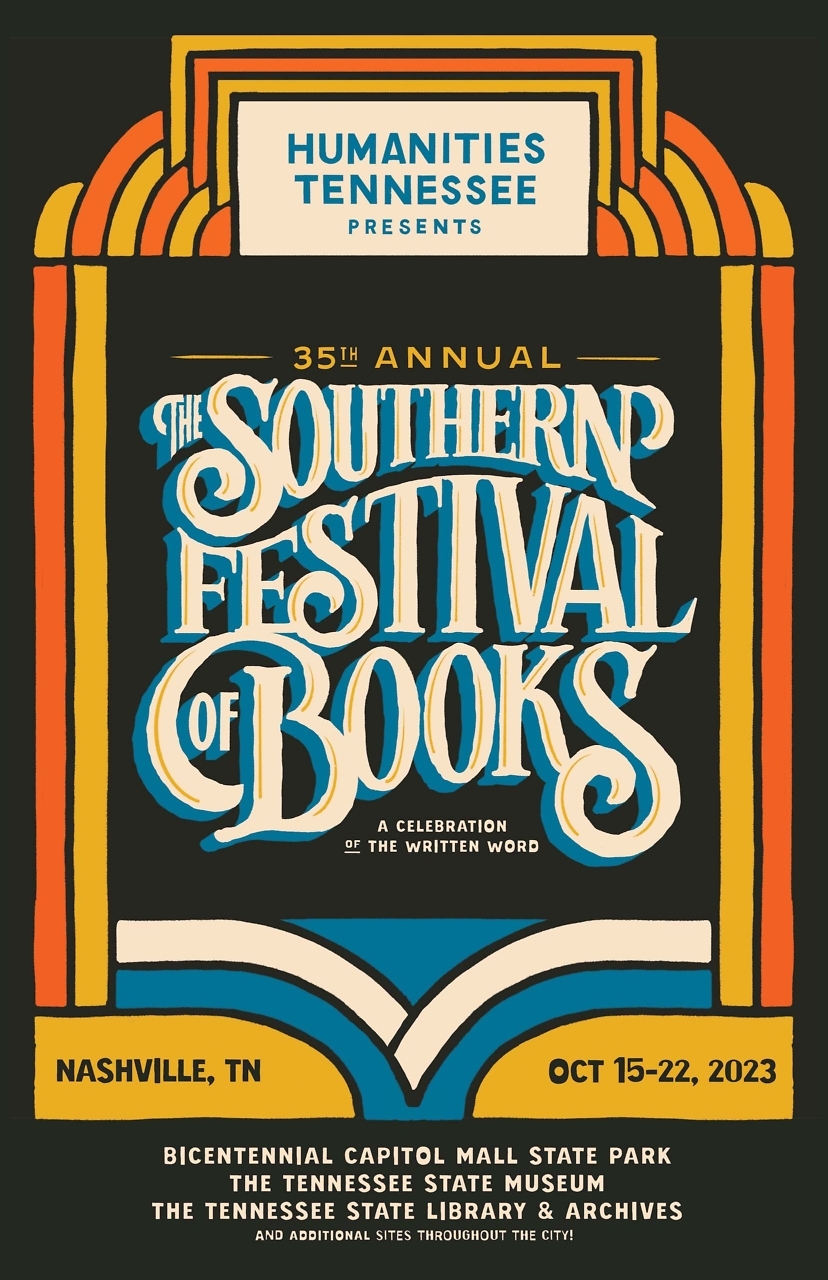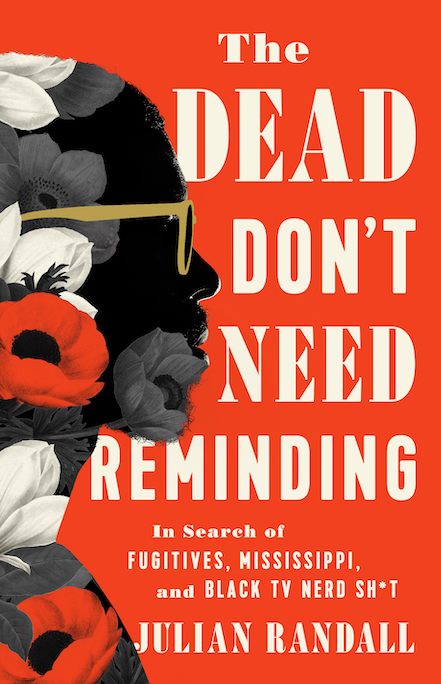Much-Needed Reckonings
An accidental food writer looks for lessons from the canon
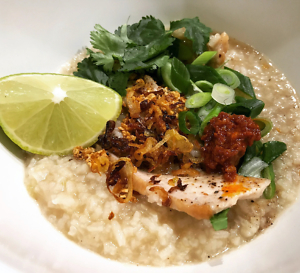
Chantha Nguon and I sipped Angkor beers in a moonlit village and cooked up a plan. I’d been hired by a Nashville philanthropist to co-write Chantha’s memoir — of surviving wars and terrible losses to found a nonprofit women’s center in rural Cambodia. Chantha was skeptical of this idea. Her own history, she felt, was a tragedy shared with so many other survivors that no one would see it as extraordinary. But in the kitchen, she owned her story. There, she was a master artist who spoke with authority and passion of the skills handed down through her female forebears. Her sense memories spun a narrative both personal and universal. A fiery green papaya pickle tasted like visits to a grandmother’s house. Instant noodles conjured refugee camp ration extenders smuggled through razor wire. Some dishes resurrected flavors nearly erased from collective memory by genocide, and lately, by modernizing tastes.
I suggested that we might tell her story through those remembered recipes — each one a time machine that could summon lost worlds — and maybe illuminate a path through grief. She agreed.
And that’s how, together, she and I became food writers.
Or did we?
***
I know what you’re thinking: The memoir-in-recipes idea is not new. It’s true. But I was on the far side of that epiphany — and many others — when we started this collaboration. I still had to learn a whole new vocabulary, the context behind Chantha’s vast repertoire of dishes, and the need for extreme care in amplifying the voice of someone who has endured traumas that I can barely fathom.
I was in over my head. So over the past decade, I’ve turned to food-writer colleagues many times for guidance, asking them how to do this work responsibly and get the story right. Here’s some of the advice I’ve gleaned from reading widely — zooming in on work by authors from Tennessee, the place I know best — and in some cases, picking up the phone and outright begging for help.
~Lesson 1: Experience deeply. Firsthand, if possible.
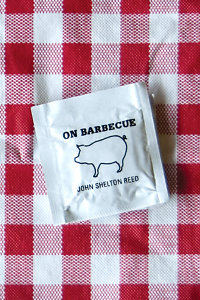 Eat: “Drive a hundred miles and the barbecue changes,” writes Kingsport native John Shelton Reed in Barbecue: A Savor the South Cookbook. You can’t hone those discerning taste buds without putting in the miles — and the meals. And Reed has. A sociologist and prolific writer about the American South, he estimates that he and his wife have eaten between 500 and 1,000 plates of barbecue. His most recent book, On Barbecue, compiles the journalism born of decades of dining and researching. I email him to ask what a food writer needs to know. “You can’t know too much,” he says. “Read food history, read cookbooks, eat the local food wherever you go. Build up inventories of facts and food memories. You’ll be surprised at what turns out to be useful.”
Eat: “Drive a hundred miles and the barbecue changes,” writes Kingsport native John Shelton Reed in Barbecue: A Savor the South Cookbook. You can’t hone those discerning taste buds without putting in the miles — and the meals. And Reed has. A sociologist and prolific writer about the American South, he estimates that he and his wife have eaten between 500 and 1,000 plates of barbecue. His most recent book, On Barbecue, compiles the journalism born of decades of dining and researching. I email him to ask what a food writer needs to know. “You can’t know too much,” he says. “Read food history, read cookbooks, eat the local food wherever you go. Build up inventories of facts and food memories. You’ll be surprised at what turns out to be useful.”
Bake: Lisa Donovan has been building up inventories of self-taught recipes for decades — and recording them in scores of notebooks. “Scrawled in their pages is the story of how I became a chef,” she writes in a 2020 essay for Food & Wine. Those journaled inventories proved useful as she rose to pastry-chef stardom in Nashville; they also chronicled her evolution as a writer. Donovan’s debut memoir, Our Lady of Perpetual Hunger, sits on the culinary memoir shelf. But it’s really the story of a woman fighting through trials and traumas to build a beautiful life for herself — with her hands in dough throughout. “Something as simple as baking can save you,” she writes in her memoir. “It saved me, again and again.”
Wade in: Erin Byers Murray sought a different kind of salvation. By the late 2000s, she’d found success as a Boston food writer but felt that something was missing: “I had no understanding of the business of food, of what it felt like to watch something grow,” she writes in the introduction to a book about what happened next: She gave up her high-flying writer’s lifestyle and went to work for Island Creek Oysters in Duxbury, Massachusetts. Murray spun that year into her first book, Shucked: Life on a New England Oyster Farm, then moved back South and waded into a Southern staple. Grits: A Cultural and Culinary Journey Through the South chronicles her visits with people who grow and mill grits — and her test-kitchen adventures with cooking a food she’d long considered bland and boring. These experiences helped her see grits, and her home region, as a complicated, unfinished story, “told from millions of different perspectives — all of them true and revelatory.”
Cook … together: I know I shouldn’t have a favorite. But the food writer’s journey that moves me most belongs to my neighbor, Taylor Holliday, a globetrotting journalist who adopted an 11-year-old from China a decade ago. She and her daughter Fongchong initially struggled to connect, until Holliday learned to cook the Sichuan dishes Fongchong loved and missed. “When her daughter ate these dishes, she opened up about her past,” writes Louisa Shafia, another local food journalist, in a feature for Eating Well. “Gradually, through nourishment, their relationship evolved.” Holliday’s story of bonding with Fongchong over Sichuan cooking grew into a blog, and then into a thriving import company specializing in hard-to-find Sichuan ingredients. Mother and daughter now run themalamarket.com together, thus altering our foodways very much for the better.
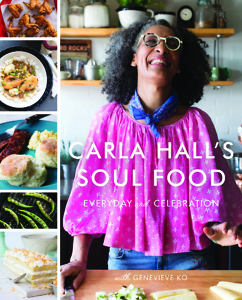 DO stuff: These stories echo advice for aspiring food writers from Food52 founder Amanda Hesser in a 2012 article for the site: “Get your hands dirty … Wash dishes in a restaurant. Work on a farm. Get a job in a food factory.” The most direct practitioners of this counsel are restaurateurs, caterers, and cookbook authors like Maneet Chauhan, Sarah Gavigan, Carla Hall, Louisa Shafia, Amber Wilson, Nicki Pendleton Wood, and Sean Brock, who explore regional cuisines in the kitchen and on the page.
DO stuff: These stories echo advice for aspiring food writers from Food52 founder Amanda Hesser in a 2012 article for the site: “Get your hands dirty … Wash dishes in a restaurant. Work on a farm. Get a job in a food factory.” The most direct practitioners of this counsel are restaurateurs, caterers, and cookbook authors like Maneet Chauhan, Sarah Gavigan, Carla Hall, Louisa Shafia, Amber Wilson, Nicki Pendleton Wood, and Sean Brock, who explore regional cuisines in the kitchen and on the page.
What’s clear is that deep engagement brings not only deep knowledge, but sometimes also devotion, resilience, and connection. A writer gains a more nuanced understanding of her native soil — and loves home the more for it. A mother and daughter come together in the kitchen and summon new tastes from afar.
Sometimes, that deep engagement means looking to the past.
***
~Lesson 2: To move forward, first look backward.
In Preserving Our Roots: My Journey to Save Seeds and Stories, Knoxville native (and Blackberry Farm master gardener) John Coykendall chronicles his mission to safeguard the South’s disappearing agricultural traditions by asking his elders to share memories and heirloom seeds. “When an old person passes away, it’s like burning down a library,” he writes. His message is that human survival may depend on relearning these older ways. “You keep this seed and you grow it,” one farmer says, as he gives Coykendall a rare butter bean to plant. “You will never go hungry.”
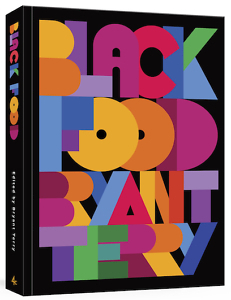 Recovering past knowledge has been a cornerstone of Memphis food justice activist and vegan chef Bryant Terry’s work. In a recent YouTube interview, he invokes a word from the Akan language of West Africa, “sankofa,” which means looking to ancestral wisdom to help us navigate our lives. His rural Southern grandparents passed on their own wisdom to him about the value of growing and eating nutritious produce; they “understood the importance of self-determination and feeding oneself.” A new book called Black Food: Stories, Art, and Recipes from Across the African Diaspora, which Terry edited, collects all manner of ancient (and modern) knowledge, from recipes to poems. “I feel like it’s my responsibility to share it,” he says.
Recovering past knowledge has been a cornerstone of Memphis food justice activist and vegan chef Bryant Terry’s work. In a recent YouTube interview, he invokes a word from the Akan language of West Africa, “sankofa,” which means looking to ancestral wisdom to help us navigate our lives. His rural Southern grandparents passed on their own wisdom to him about the value of growing and eating nutritious produce; they “understood the importance of self-determination and feeding oneself.” A new book called Black Food: Stories, Art, and Recipes from Across the African Diaspora, which Terry edited, collects all manner of ancient (and modern) knowledge, from recipes to poems. “I feel like it’s my responsibility to share it,” he says.
As I ask my colleagues what elders I should turn to for wisdom, several names keep coming up: Cherokee-Appalachian writer Marilou Awiakta. Phila Hach, the prolific author and TV host, who became a sort of ambassador for Southern cooking. Malinda Russell, the first known Black cookbook author in America, who published A Domestic Cookbook in 1866. And of course, John Egerton, whose writing about Southern food was inseparable from his work on the civil rights movement. He challenged those who followed him to write about the South in a new way.
Was Egerton a food writer, a social justice activist, or a historian? I ask around and uncover a range of answers. The simplest version: Yes.
***
~Lesson 3: No one is a food writer. Everyone is a food writer.
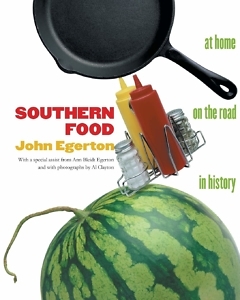 “Food in the South is more than a social and cultural phenomenon;” Egerton writes in his 1987 book, Southern Food: At Home, on the Road, in History, “it has economic and political and religious dimensions as well.” Is Egerton’s work even food writing, or something else apart? To address that question, I call John T. Edge, author of The Potlikker Papers, who carries on Egerton’s legacy in part as director of the Southern Foodways Alliance, which Egerton co-founded. Edge opens the discussion by gently objecting to the modifier. Egerton, he says, “didn’t isolate ‘food’ writing. That’s the biggest lesson. John wrote about the South at war with itself. John wrote about the civil rights movement and its legacies. And John wrote about food. To read John’s books and magazine pieces is to see a new way of thinking about the South that incorporates food but doesn’t center food.”
“Food in the South is more than a social and cultural phenomenon;” Egerton writes in his 1987 book, Southern Food: At Home, on the Road, in History, “it has economic and political and religious dimensions as well.” Is Egerton’s work even food writing, or something else apart? To address that question, I call John T. Edge, author of The Potlikker Papers, who carries on Egerton’s legacy in part as director of the Southern Foodways Alliance, which Egerton co-founded. Edge opens the discussion by gently objecting to the modifier. Egerton, he says, “didn’t isolate ‘food’ writing. That’s the biggest lesson. John wrote about the South at war with itself. John wrote about the civil rights movement and its legacies. And John wrote about food. To read John’s books and magazine pieces is to see a new way of thinking about the South that incorporates food but doesn’t center food.”
As I read the work of Egerton and others, I see this theme again and again. Historian Rachel Louise Martin interweaves the lore of hot chicken with a study of racist city planning in Hot, Hot Chicken: A Nashville Story. Journalist Amanda Little, who writes about energy and the environment, reaches readers at gut level by writing about these issues through a lens of food. In The Fate of Food: What We’ll Eat in a Bigger, Hotter, Smarter World, she talks to forward-thinking farmers, scientists, inventors, and innovators worldwide about how we’ll grow and produce food as the planet warms. “Food is a love language: it’s political but also very personal. It defines cultures and communities and traditions,” she tells me. “It intersects with climate change and environmental policy, with local and global economies, and with racial identity and social justice.” Judging from the attention that book has garnered, Little is onto something.
“So many people are food writers but don’t call themselves food writers,” explains Nashville Eats author Jennifer Justus. She ticks off recent examples: Erica Ciccarone’s Nashville Scene story about the Nashville Food Project (where Justus now works); Steve Cavendish’s feature on the evolution of Porter Road Butcher; and, I would add, Justus’ elegy for the storied Hermitage Café. What those pieces have in common is humanity: They’re insightful, conscientious profiles of the people who create, and are enriched by, our local foodways, from businesses to food justice nonprofits.
Because food writing — or for that matter, all writing — is really about people.
***
~Lesson 4: Be careful with people’s lives.
That’s a direct quote from Justus, a careful writer whose advice has guided me for many years, through this story and others. In a long backyard conversation about how to tackle this piece, we talk about public reckonings and private soul-searching, not only about what stories to tell, but who should tell them. “It makes me question everything,” she says. “But I guess that’s what we’re supposed to be doing.”
Justus often looks to Egerton’s legacy for guidance: his generosity and curiosity. The way he championed underdogs and celebrated the fixers of this world. “Egerton’s message to keep working positively toward a better future while looking out for the underserved and neglected remains relevant,” she writes in a 2018 remembrance. She considers him the trunk of a family tree of Southern food writing, one whose branches of influence reach far and wide.
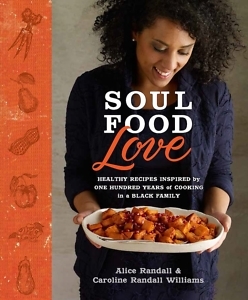 When author Alice Randall met Egerton in the 1980s, she initially thought “political John Egerton” was a separate person from “food John Egerton,” an understandable error that made them both laugh. That first meetup began decades of lively discussions about food, politics, and writing. One thing they agreed on was that “the table wasn’t purely a positive space,” she says. “The table was tortured. But it was where Southerners were most divided and where they could be reconciled.” Reckoning, they both knew, must come before reconciliation.
When author Alice Randall met Egerton in the 1980s, she initially thought “political John Egerton” was a separate person from “food John Egerton,” an understandable error that made them both laugh. That first meetup began decades of lively discussions about food, politics, and writing. One thing they agreed on was that “the table wasn’t purely a positive space,” she says. “The table was tortured. But it was where Southerners were most divided and where they could be reconciled.” Reckoning, they both knew, must come before reconciliation.
Randall, a novelist, sees food writing as singularly important. “Food is elemental, the first human exchange,” she says. “You are born, and someone feeds you. Food is the first gift every human being receives.” Randall has addressed both the painful and the elemental in her writing. She illuminates the prevalence of obesity and diabetes among Black women in Ada’s Rules: A Sexy, Skinny Novel, and, with her daughter Caroline Randall Williams, offers a fresh spin on traditional recipes in Soul Food Love: Healthy Recipes Inspired by One Hundred Years of Cooking in a Black Family. Randall advises writers that, because food and food writing connect so powerfully to memory and identity, writers should approach the task with “a particular kind of grace, mercy, and ethics.”
That advice echoes Justus’ reflections on her own evolving standards of carefulness and could also sum up Egerton’s legacy. Randall’s take on who-tells-what is that anyone can tell any story they choose. But she’s quick to pass on an opportunity if someone with a smaller megaphone could tell it better or needs the work more. “Help the creators!” she advises. “Don’t exploit anybody.” And, she suggests, ask yourself honestly, who is the best person to write this? You may have better access, but is there someone else closer to the story? “There are no rules about these things,” Randall adds. “We don’t have all the answers, but we’re asking a lot of good questions.”
Maybe part of a food writer’s job, in asking those questions, is to contribute to much-needed reckonings, whether the topic is race, food justice, climate change, workplace inequity … or genocide and disappearing cultural memory. In that sense, maybe nothing is food writing. Maybe everything is.
With all this in mind, I follow the counsel of these writers, whose work I so admire. I study Cambodian history and culture, travel to Cambodia, listen to Chantha’s testimony, and sometimes, cry with her. We cook and eat together. Cambodian dishes lose their italics — they become my comfort foods. Years pass. The inventories grow. I question myself throughout. And the pages begin to unfurl.

Kim Green is a Nashville writer and public radio producer, a licensed pilot and flight instructor, and the editor of PursuitMag, a magazine for private investigators. An excerpt from Slow Noodles, the memoir she is co-writing with Chantha Nguon, recently appeared at Hippocampus.
